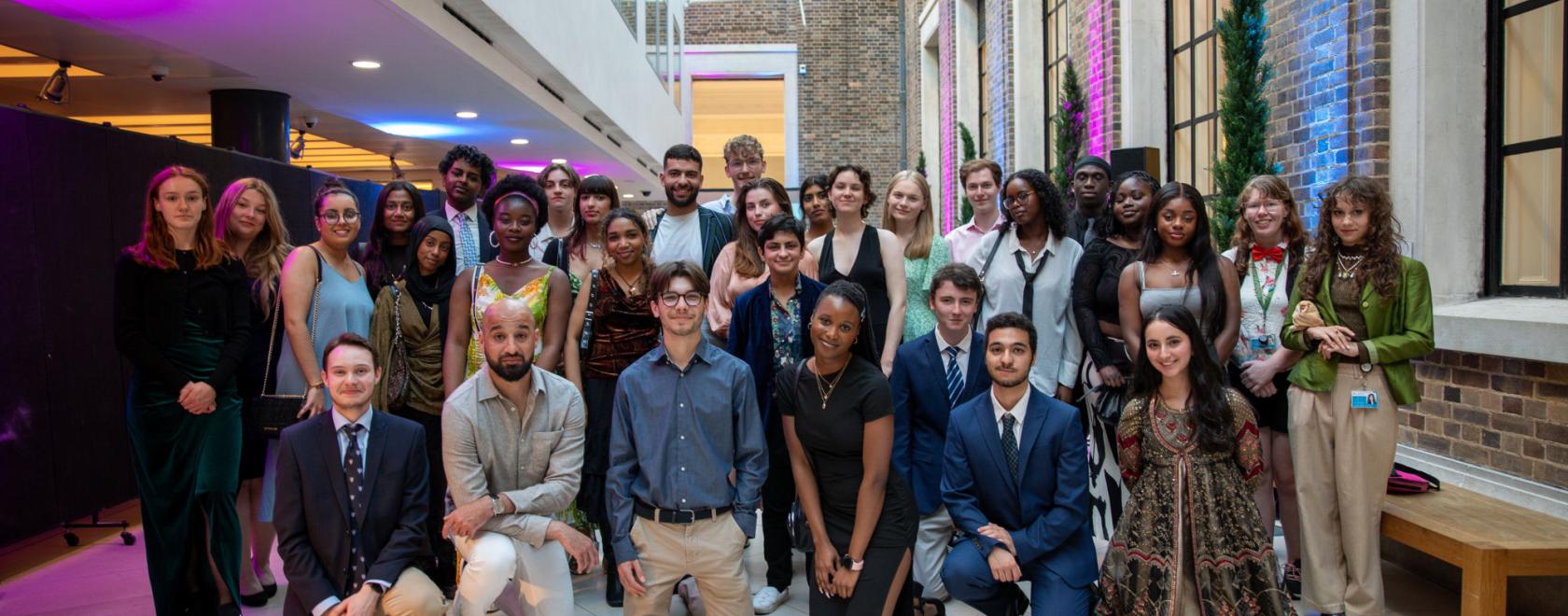This innovative programme offers talented students from backgrounds of educational and social disadvantage a route to undergraduate study. The one-year course – aimed at applicants who have the ability to succeed at Cambridge, but have been prevented from reaching their full potential by their circumstances – prepares students for further learning and offers them the chance to progress straight to an undergraduate degree at Cambridge.
A cornerstone £5 million gift from philanthropists Christina and Peter Dawson funds full one-year scholarships for all students who are accepted. Those who have been in care, those estranged from their families, and those who have missed significant periods of learning because of health issues are among the groups the Foundation Year aims to reach – students whose education has been disrupted and are therefore unlikely otherwise to be able to make a competitive application to undergraduate study at Cambridge through the University’s standard admissions process. Other possible candidates include students who have been unable to access suitable qualifications, those from low income backgrounds, and those from schools which send few students to university.
Foundation Year students will apply directly through UCAS by the January deadline, and will undergo interviews and assessments to identify their aptitude. Typical offers will require 120 UCAS Tariff Points, which is equivalent to BBB at A-Level. The usual offer is at least A*AA.
The students study at one of the 13 Cambridge colleges participating, and benefit from the community, support and academic stimulation this offers, which is intrinsic to the Cambridge experience. They study an engaging and challenging multi-disciplinary curriculum in the Arts, Humanities and Social Sciences that will prepare them for further study in these subjects. Thus students do not study history as a separate subject, but it forms an element of the study streams on offer.
Participants have the ability to choose papers from across a number of streams and gain subject knowledge relevant to their future degree course as well as being introduced to new subjects and approaches. They are taught through lectures, seminars and supervisions, with typically 14-16 hours timetabled teaching hours each week. The curriculum is offered across four streams and students complete eight papers from the options available across these four streams. They also complete an induction module which introduces students to approaches to learning at Cambridge.
The four streams are:
- Working with textual sources
- Working with material sources
- Working with languages
- Working with data
On successful completion of the programme, students receive a nationally recognised Certificate of Higher Education qualification from the University of Cambridge. If they have good enough grades, they can progress to degrees in the Arts, Humanities and Social Sciences at Cambridge without the need to apply to the University again. Students are supported during the programme in finding alternative university places if they do not wish to continue to undergraduate study at Cambridge, or do not meet the required level of attainment.
Annabel, former Foundation Year student now studying History at Gonville & Caius College
Frequently asked questions
Students apply via UCAS by the 31 January deadline. The application deadline is 31 January 2024 for Michaelmas 2025 entry. Further information is available at https://www.undergraduate.study.cam.ac.uk/courses/foundation-year
Typical offers require 120 UCAS Tariff Points (academic points only), which is equivalent to BBB. No specific subjects are required. The offer level - expressed in UCAS Tariff points rather than ALevel grades (or equivalent) to ensure flexibility - takes into account the disadvantage/disruption eligible students are likely to have experienced so far, the programme’s requirements, and the likelihood that the programme’s curriculum can bring these students to the required level of attainment. We will accept a range of qualifications – from A-Levels, Scottish Highers, IBs, BTECs, Access Diplomas and more.
Further information is available at https://www.undergraduate.study.cam.ac.uk/courses/foundation-year
There are no tuition fees charged for the Foundation Year. Students admitted to the Foundation Year receive a Scholarship to cover rent and other living costs. This is equivalent to what they would receive as a maintenance loan from student finance (currently £9,250) and will be ‘topped up’ with an amount in line with the existing levels offered through the Cambridge Bursary Scheme (up to £3,500 depending on household income). In receiving this Scholarship, students will not need to take out student finance for the Foundation Year, but may need to apply for relevant student finance on continuation to a degree course and will receive guidance on options available to them, including government student finance and any Cambridge-specific bursaries for which they may be eligible.
Given the focus of the programme on educational disadvantage, applicants with a background of attendance at an independent school will normally be deselected.
No school type is excluded, but candidates must meet eligibility criteria. Eligibility for the Foundation Year relies on individual-level indicators of educational disadvantage. The programme is aimed at applicants who have the ability to succeed at Cambridge, but have been prevented from reaching their full potential. This includes students who have been unable to access suitable qualifications, those from low income backgrounds, and those from schools which send few students to university.

